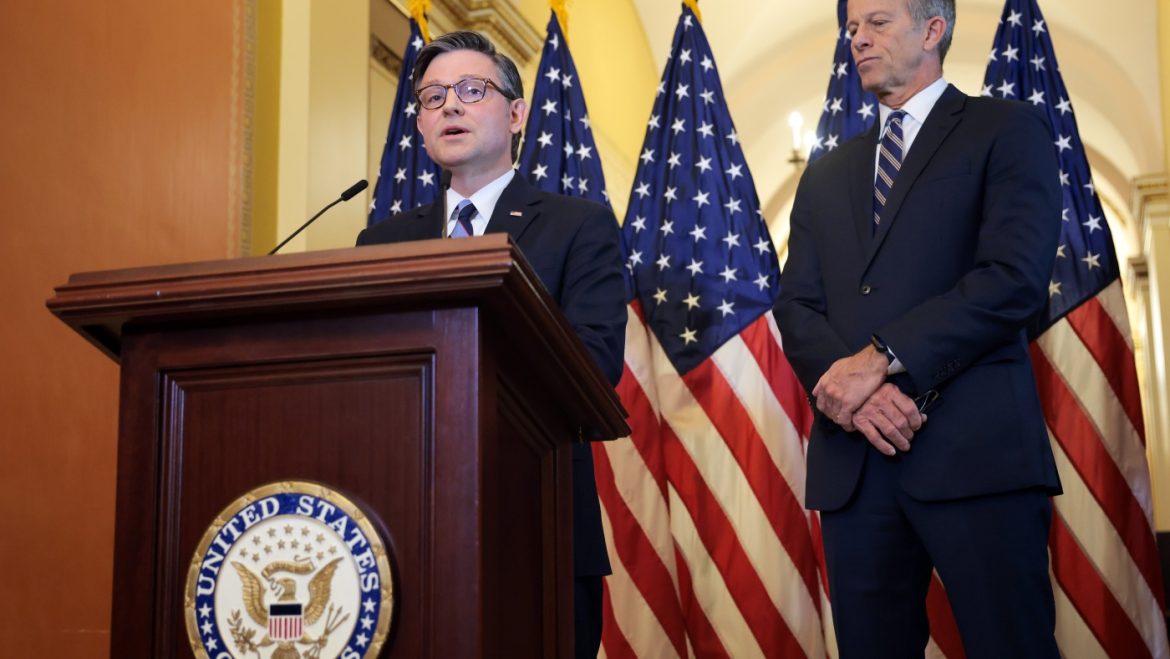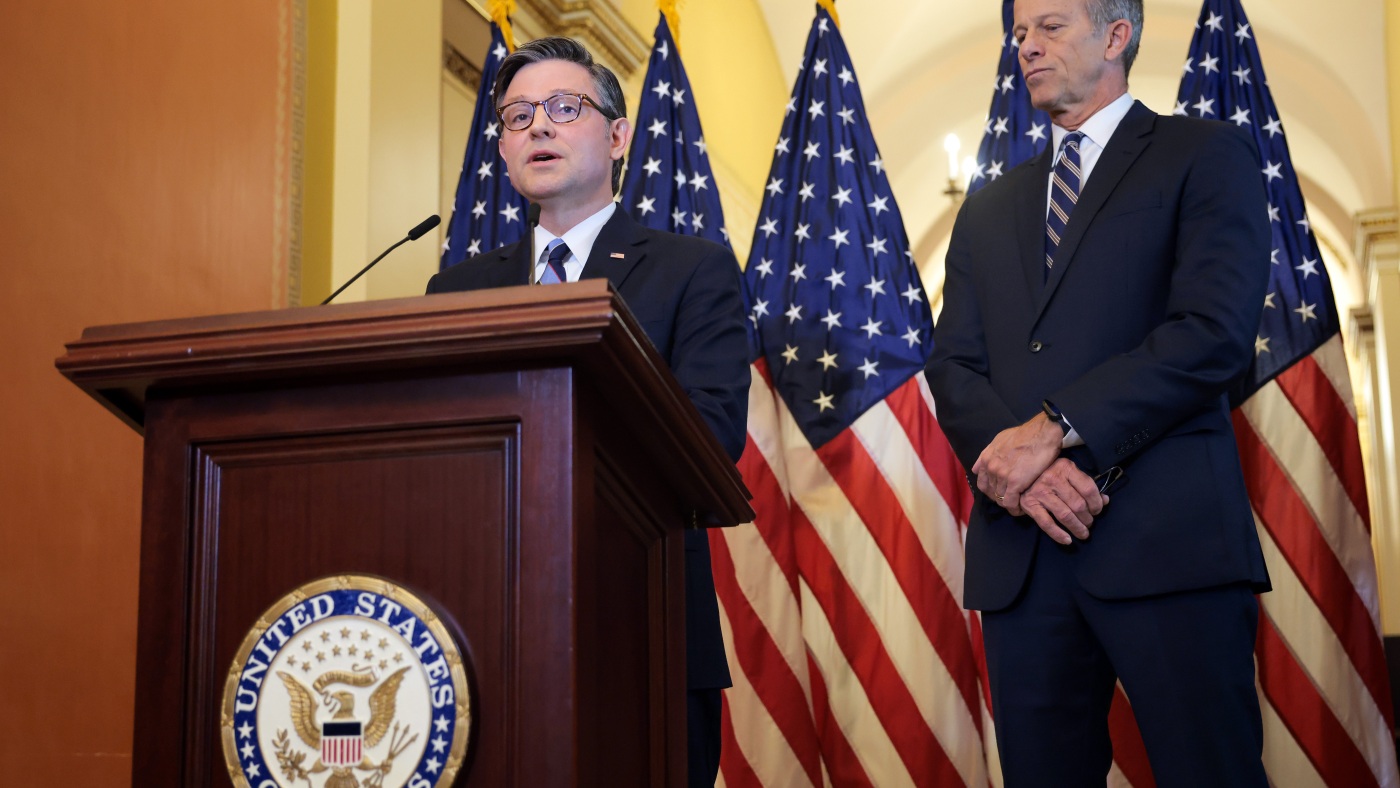Unfolding Developments: Senate’s Pursuit of Trump’s Budget and the Colorado Attack
Recent legislative and local events highlight contrasting focal points in U.S. public affairs as of early June 2025. The Senate, predominantly controlled by Republicans, is actively working to endorse an extensive budget blueprint central to former President Donald Trump’s domestic policy platform. Simultaneously, a distressing incident emerged in Boulder, Colorado, involving injuries, including burning, in an attack at a public event. Both scenarios illustrate intertwined challenges facing legislators and communities alike.
—
The Senate’s Push to Enact Trump’s Budget Plan
Scope and Ambition of the Budget Proposal
The Senate GOP’s budget resolution embodies a multi-trillion-dollar strategy meant to advance the core tenets of Trump’s agenda. Central to this proposal are significant tax cuts, expansive reforms in defense spending, revisions of energy policies, and stringent immigration controls. The consolidated bill integrates multiple priorities aimed at reshaping domestic policy facets in alignment with conservative objectives.
Among the prominent features is the allocation of $175 billion to enhance immigration enforcement efforts, particularly targeting mass deportation initiatives, which reportedly have encountered budgetary shortfalls. The package also includes substantial funding commitments intended to bolster military capabilities and revamp energy infrastructure to favor traditional fossil fuels and deregulated markets.
Legislative Journey and Political Dynamics
The Senate’s return from recess marked an intense legislative session characterized by a marathon of amendment votes. Through these procedural battles, Senate Republicans demonstrated unified support, ultimately passing the budget framework by a narrow margin (51-48), signaling a highly polarized chamber.
Despite this victory, the path remains contentious. Senate Democrats have vocally opposed the GOP’s vision, criticizing the wide-reaching cuts to social programs and the deepening focus on immigration enforcement. Internal GOP divisions persist as several conservative senators express reservations about certain bill components, potentially complicating the final passage when reconciliation with the House emerges.
This divide, set against the backdrop of earlier House approval of a similar ‘big, beautiful bill’, underscores the intricate negotiations ahead. The Senate’s role is pivotal as it shapes not merely funding parameters but also the legislative future of Trump’s policy legacy.
Broader Political Implications
The Senate’s budget resolution is more than fiscal planning; it is a decisive contest over the nation’s policy trajectory. It reflects ongoing culture wars and ideological fault lines, with “MAGA” conservatives pushing aggressively for a hardline posture on immigration and defense, while moderates and Democrats advocate for more balanced social safety nets and climate-conscious energy reforms.
Moreover, the Republican effort to fast-track Trump’s agenda signals confidence in leveraging their current congressional majority, yet also exposes vulnerability to procedural setbacks and dissent within ranks. The struggle highlights the complex reality of legislative governance amid partisan polarization and competing priorities.
—
The Boulder, Colorado Attack: A Community Shaken
Incident Overview
On June 1, 2025, a troubling attack occurred at a public event in Boulder known as “Run for Their Lives.” This gathering was reportedly targeted by an assailant, resulting in eight injuries, several victims suffering burns. Among those wounded was a Holocaust survivor, emphasizing the incident’s poignant human impact.
The nature of the attack, under investigation by law enforcement, has elicited a wave of concern and calls for community solidarity. Authorities swiftly detained a suspect in connection with the event, though motives remain to be fully clarified in ongoing inquiries.
Community and Social Repercussions
The Boulder attack resonates deeply within a community known for civic engagement and historical trauma awareness. Beyond the immediate physical injuries, such violent incidents evoke broader anxieties about public safety, hate crimes, and the vulnerability of social gatherings.
Local officials and citizens have responded with vigils and support initiatives for the affected, emphasizing resilience and healing. The incident also invites reflection on societal divisions and the urgent need for preventative measures to curb extremist violence.
—
Intersecting Narratives: National Policy and Local Tragedy
While the Senate concentrates on advancing a sweeping budget blueprint aimed at reshaping national governance, the Boulder attack serves as a stark reminder of the human realities behind political discourse. These juxtaposed events highlight the multifaceted challenges confronting the United States—from budgetary politics influencing millions, to immediate crises impacting individual lives.
The legislative efforts to fund immigration enforcement and law enforcement intersect conceptually with concerns raised by violent acts in communities. Yet, the effectiveness of policy responses depends heavily on nuanced understanding and broad collaboration beyond partisan lines.
—
Closing Reflection: Navigating a Complex Political and Social Landscape
The passage of Trump’s budget plan through the Senate signals a decisive step toward realizing a conservative vision for America’s future. Yet, the accompanying dissent and tight vote margins reveal how contentious this vision remains. Legislative success here demands navigating intra-party tensions, opposition critiques, and public scrutiny.
Concurrently, the Colorado attack casts a somber shadow over political achievements, underscoring the persistent threat of violence and the fragility of public safety. It implores lawmakers and citizens alike to address not only macro-level reforms but also grassroots resilience and inclusivity.
This dual landscape challenges the nation to balance decisive policy-making with empathy and vigilance, forging pathways that secure prosperity and protect all communities in an era fraught with complexity and change.


